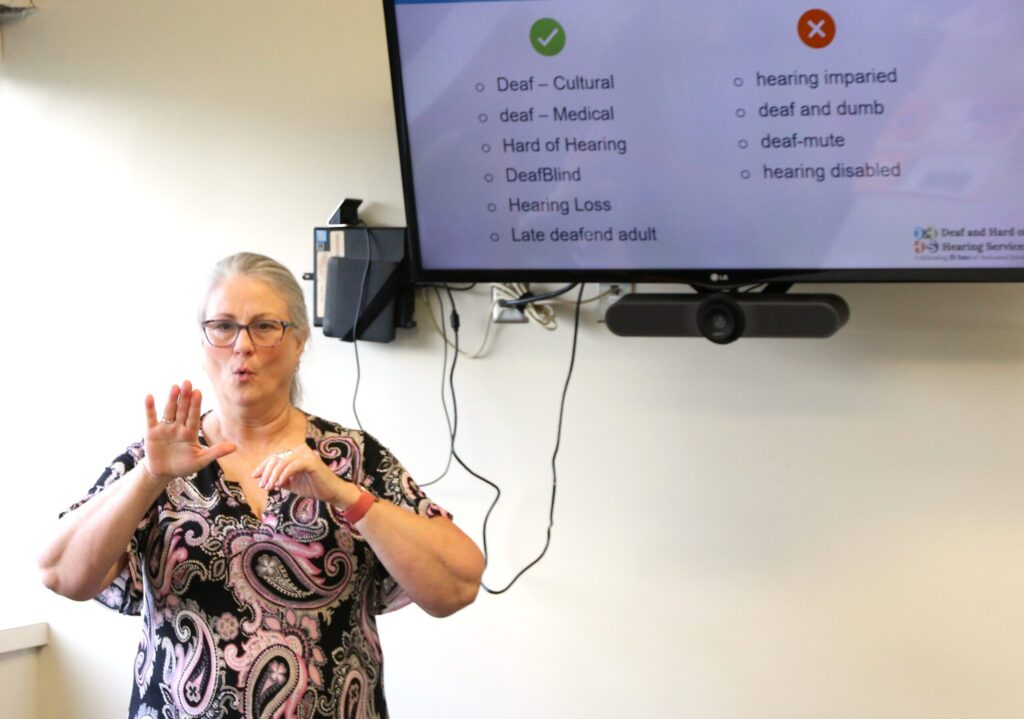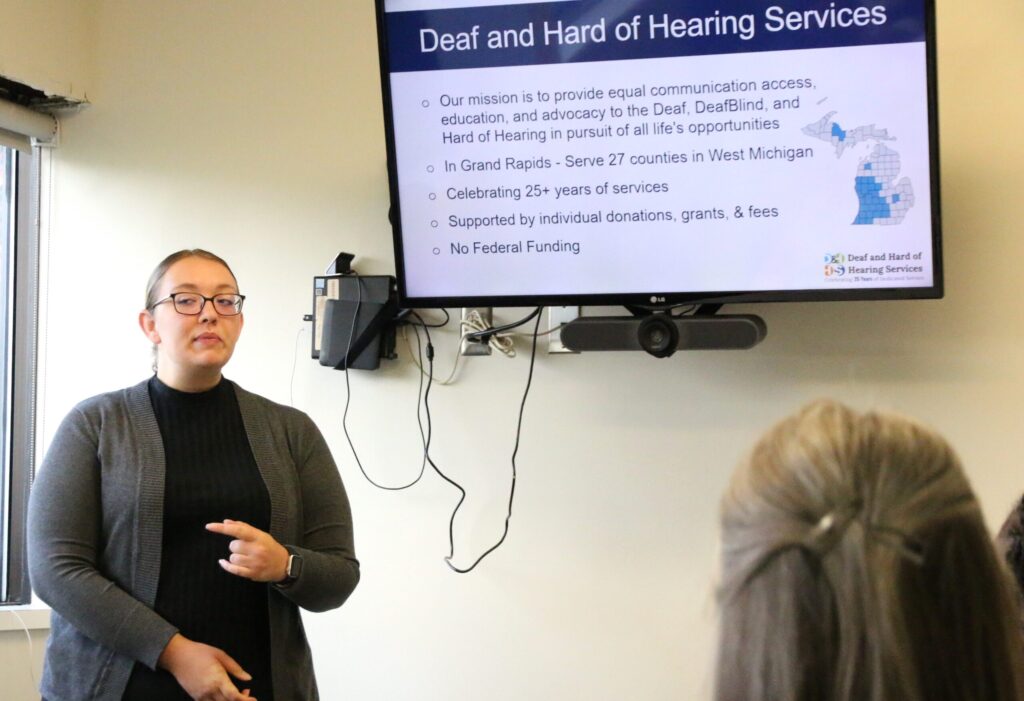DEI&A Training Creates Awareness
Recent presentations by Erica Chapin and Nancy Piersma to staff at four Catherine’s Health Center locations were a great opportunity to help frontline healthcare workers better understand the Deaf.
“I love to do these presentations,” she said with a smile. “Hopefully they empower people to know what to provide and how to understand the ADA. I enjoy meeting with people and talking about how to support them.”
Chapin, D&HHS Community Partnerships Manager, agreed.
“It gives us the opportunity to educate those who are serving important needs in the community,” Chapin, D&HHS community partnerships manager, said. “We want to educate so people can be prepared.”
Each presentation to Catherine’s was about an hour in length with time at the end for questions.
The goal was simple: help Catherine’s staff understand how to better serve the Deaf, DeafBlind and Hard of Hearing communities. Topics covered included appropriate accommodations under the ADA, how to schedule interpreters, how to get the attention of a Deaf patient and more.
Chapin added that such presentations are not just for healthcare settings. She and Piersma do what D&HHS calls DEI&A (Diversity, Equity, Inclusion, and Accessibility) training for a variety of nonprofits and for-profits in West Michigan and beyond.
“Over the past year, we presented to banks, social service organizations, medical students and court systems,” she said. “We are happy to work with any Michigan companies who’d like to add a better understanding of the Deaf, DeafBlind and Hard of Hearing communities and their cultures.”
Piersma, who is Deaf, noted that accessibility for the Deaf, DeafBlind and Hard of Hearing communities is often overlooked.


“What we offer will make your organization better equipped to work well with Deaf, DeafBlind and Hard of Hearing customers and employees,” she said.
Both Chapin and Piersma said that attendees usually say they learned a lot about things they never really considered before. Jennie Knight, a practice manager for Catherine’s dental clinic, attended a recent session and said that was true.
“It was wonderful to hear Nancy explain so much about the Deaf Culture,” she said. “Hearing it from someone in the community is vital so that we are not making assumptions. And both Nancy and Erica were welcoming and shared great information.”
Knight added that knowing how to best communicate with patients is vital, so understanding more about the Deaf Culture and the communication used will be vital to Catherine’s providing them healthcare in an appropriate and respectful way.
Sam Wohlfeil, director of strategic engagement for Catherine’s Health Center, coordinated the recent sessions with Chapin and said such events are incredibly valuable to the organization.
“We want to make sure we are doing all we can to break down barriers and provide quality and compassionate care to everyone coming through our doors,” he said. “Sessions and education like this allow us to better serve these populations, break down those barriers and allow our staff to better understand how to best provide care and be aware and compassionate of the needs of those that often go without care because they can’t find providers that are willing to learn and give them the time needed.”
Wohlfeil added that the feedback he received from attendees was all positive with staff members appreciating Chapin and Piersma and their ability to deliver content that would be directly applicable to day-to-day work at Catherine’s.
“We really love and value our relationship with D&HHS,” he said. “We’ve been working closely with them for a while now, and we look froward to continuing to partner with them moving forward.”
